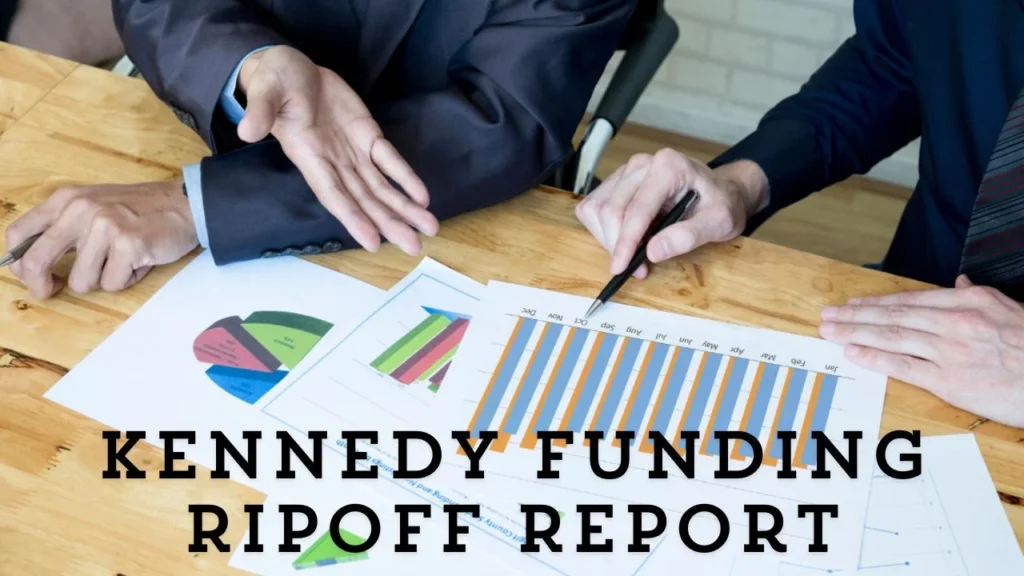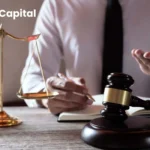In the high-stakes arena of private lending, where desperate developers and real estate moguls turn for quick cash infusions, Kennedy Funding Inc. has positioned itself as a lifeline for deals that banks deem too risky. Founded in 1989 and headquartered in Englewood Cliffs, New Jersey, this direct lender specializes in asset-based bridge loans, funding everything from land acquisitions and construction projects to workouts and foreclosures with over $4 billion in closed deals to date. Promising lightning-fast approvals—often in as little as five days—and flexible terms up to 90% loan-to-value ratios, Kennedy Funding markets itself as the go-to for savvy investors navigating commercial real estate’s choppy waters. Yet, as of September 20, 2025, a storm cloud hovers: the “Kennedy Funding Ripoff Report” has exploded in online searches, fueled by a torrent of anonymous complaints alleging predatory tactics, hidden fees, and outright deception.
Kennedy Funding’s Empire: From Niche Lender to Controversy Magnet
Kennedy Funding didn’t build its empire overnight; it carved it out by filling a void in the lending landscape, offering hard money solutions where traditional banks balk at the volatility of real estate flips and distressed assets. Under the stewardship of brothers Kevin and Gregg Zweig, the firm has funded thousands of projects across the U.S. and internationally, boasting endorsements from industry heavyweights and a portfolio that spans luxury condos in Miami to industrial rehabs in the Midwest. Their pitch is irresistible: no red tape, creative structuring, and closings that outpace competitors by weeks, all secured against property values rather than credit scores. This model thrives in boom-bust cycles, like the post-2020 recovery where commercial deals spiked 25%, per industry data, drawing in borrowers who couldn’t wait for SBA approvals or endure endless paperwork.
The reports didn’t materialize in a vacuum; they stem from a perfect storm of economic pressures and the inherent risks of private lending, where high interest rates—often 12-18%—and origination fees up to 5% are par for the course but can blindside the unprepared. As inflation cooled to 2.5% in mid-2025, borrowers facing stalled projects turned to forums like Reddit’s r/legal and BiggerPockets to vent, with threads dissecting Kennedy Funding Ripoff Report entries that date back years but resurfaced amid a 2024-2025 lending crunch. What began as isolated gripes has snowballed into a reputational crisis, with search volumes for “Kennedy Funding scam” up 150% year-over-year, according to SEO analytics. For a firm priding itself on “trusted” status—evidenced by its 2017 Ripoff Report Verified Safe designation—these allegations sting, especially as competitors like Kiavi and CoreVest capitalize on the fallout with cleaner online slates.
Unpacking the Kennedy Funding Ripoff Report: Common Complaints Exposed
At the heart of the Kennedy Funding Ripoff Report lies a litany of borrower horror stories, predominantly anonymous posts on consumer sites decrying practices that feel more like a financial ambush than a partnership. Chief among them: hidden fees that balloon closing costs beyond quoted figures, with some claimants alleging “bait-and-switch” tactics where initial low-rate teases morph into punishing penalties upon due diligence failures. One 2025 entrant detailed a $2 million land deal where undisclosed appraisal surcharges added 3% to the tab, pushing the borrower into default and foreclosure—echoing patterns in a February 2025 Third Circuit appeal, Quimera Holding Group SAC v. Kennedy Funding Financial LLC, where a Peruvian developer accused the firm of breach and fraud over stalled funding.
Delving into specifics, the Kennedy Funding Ripoff Report often highlights unclear terms, with borrowers claiming verbal assurances of extensions or restructurings vanished in fine print, leading to aggressive collections or asset seizures. A Coruzant Technologies analysis from January 2025 tallied over 50 such complaints since 2020, many tied to the COVID-era lending surge when remote deals amplified miscommunications. Predatory lending whispers add fuel, with accusations of targeting distressed borrowers—think underwater developers—with terms that prioritize Kennedy’s collateral grab over mutual success, potentially skirting usury laws in states like New Jersey. While not all reports hold water—Ripoff Report’s lack of verification invites embellishment—the volume suggests patterns worth heeding, especially as 2025’s rising rates (Fed hikes to 5.5%) squeeze margins and heighten desperation.
Kennedy Funding’s Rebuttal: Defending Against the Digital Storm
Kennedy Funding isn’t taking the Kennedy Funding Ripoff Report lying down; the firm has mounted a vigorous defense, leveraging official channels and transparency pledges to counter the narrative of deceit. In responses filed on Ripoff Report and BBB profiles, executives like Kevin Zweig emphasize compliance with federal lending regs, including TILA disclosures, and highlight their Mortgage Bankers Association membership as a badge of legitimacy. They attribute many complaints to borrower-side missteps—such as incomplete due diligence or market shifts beyond their control—while pointing to a 95% satisfaction rate from closed deals and proactive resolutions, like fee waivers in select 2025 cases. The Quimera lawsuit, affirmed in February 2025 by the Third Circuit, saw Kennedy prevail on procedural grounds, bolstering claims that legal challenges often fizzle under scrutiny.
This pushback extends to digital savvy: Kennedy’s 2025 blog series, “Lending Lounge,” demystifies bridge loans with Q&As from execs like Edwin Urrego, addressing Ripoff Report tropes head-on and inviting inquiries to foster dialogue. Critics, however, see this as damage control, noting the firm’s non-BBB accreditation and a smattering of unresolved disputes lingering on consumer sites. In a landscape where anonymous posts can tank reputations overnight, Kennedy’s strategy—blending rebuttals with verified safe seals—aims to reclaim narrative control, but skeptics argue it sidesteps root causes like fee opacity. As one Height Magazine piece posited in July 2025, true reform would mean standardized borrower education upfront, a step Kennedy has teased but not fully implemented. For stakeholders, this defense raises a pivotal question: Is Kennedy evolving, or merely echoing?
Navigating the Risks: Safeguards for Borrowers in 2025
The Kennedy Funding Ripoff Report isn’t just fodder for clicks—it’s a wake-up call for anyone eyeing private loans in a tightening market. First, arm yourself with pros: engage a real estate attorney early to dissect term sheets, flagging any asymmetric clauses on defaults or exits. Cross-reference multiple sources beyond Ripoff Report—dive into Trustpilot, Glassdoor for insider views, and state AG databases for formal actions, as 2025’s uptick in complaints has prompted CFTC glances at high-fee lenders. Diversify options too; shop competitors like Arbor Realty for benchmarks on rates and timelines, and always secure written fee caps pre-commitment.
Broader lessons from the fray? Private lending’s allure—speed and flexibility—comes laced with peril, amplified by unregulated corners where disputes fester anonymously. As Eman Network warned in April 2025, borrowers must treat every deal like a high-wire act: document relentlessly, negotiate buffers for delays, and walk if transparency wavers. Regulators could step in with tighter disclosures by year’s end, but until then, vigilance is your best hedge. The Kennedy Funding saga illustrates a timeless truth: in finance’s shadows, due diligence isn’t diligence—it’s survival.
FAQs
1. What is the Kennedy Funding Ripoff Report mainly about?
It compiles anonymous complaints alleging hidden fees, poor service, and deceptive terms in bridge loans.
2. Are Kennedy Funding’s scam allegations verified?
No, most stem from unmoderated sites like Ripoff Report; legal cases like Quimera were dismissed.
3. How does Kennedy Funding respond to Ripoff Report claims?
They deny wrongdoing, cite compliance, and offer resolutions while emphasizing borrower responsibilities.
4. Is Kennedy Funding a legitimate lender despite reports?
Yes, with $4B in loans closed, but high-risk terms demand caution and legal review.
5. How can borrowers avoid Kennedy Funding Ripoff Report pitfalls?
Vet terms with attorneys, compare lenders, and demand full fee disclosures upfront.
Conclusion
The *Kennedy Funding Ripoff Report* stirs controversy, amplifying unverified claims of predatory lending and hidden fees. While Kennedy Funding counters with a robust defense, citing compliance and a $4 billion track record, the allegations underscore the risks of private lending. Borrowers must prioritize due diligence, scrutinizing terms and seeking legal counsel to navigate this murky terrain. As of September 2025, no active lawsuits tarnish Kennedy’s operations, but the saga reminds us: in high-stakes finance, transparency is your shield against potential pitfalls.


